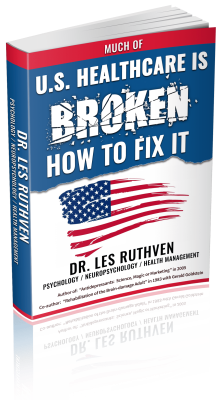Last updated on January 6th, 2024 at 08:34 am
Often the FDA’s “little better than a placebo” is not enough to establish efficacy
During my 20 years or so of reviewing health outcome research on both FDA approved and FDA non-approved but popular treatments I have come to the conclusion that the FDA standards for both efficacy and safety in many cases are quite deficient and higher standards are needed to insure both better healthcare and lower costs as well. In terms of determining efficacy and safety I believe I would give the FDA a grade of F on assuring efficacy and perhaps a grade of C- in protecting the public from harm in the FDA’s approval process.
Of the two, efficacy and safety, I believe the FDA has paid much more attention to the requirement of safety, as I think it should, but I have come to believe that across the board the FDA has been far too lenient in accepting many drugs (and other non-drug therapies) that have very limited efficacy, especially psychiatric drugs and many drugs for “medical” problems as well. A good example of the former is the FDA’s approval of 36 or so antidepressant drugs. Antidepressants are typically among the top 4 selling prescriptions in most benefit plans in the U.S. To gain approval the FDA requires drug companies to submit randomized drug, placebo-controlled, double-blind clinical trials of 6 to 8 weeks but an analysis of the FDA antidepressant clinical trial database (Ref. #1) finds that the inert placebo reduction of depressive symptoms is 80% of the drug effect! This difference in superiority of drug over placebo means that in real world use one would have to give 5 moderately to severely depressed patients antidepressant drugs to insure that one of the 5 patients would do better than if all 5 depressed patients had been put on inert placebos! This “difference” in favor of the drug is not clinically meaningful and as a Ph.D. trained to conduct and evaluate scientific research I would argue for at least one Standard Deviation of the treatment effect above the effect Mean of the placebo group for drug approval! From my review of research I would anticipate that if a higher and reasonable drug superiority standard over placebo were implemented perhaps 60% of all drugs would never have been granted FDA approval!! For example, a higher standard would mean that all anti-depressant and benzodiazepine drugs (for treating mental health problems) would never have gained FDA approval!
It seems like the FDA has done everything it can to help the drug industry. For example there is no rational reason to license 36 or more antidepressant drugs. A new antidepressant drug is approved by the FDA not because it is superior in efficacy or safety than already approved drugs but only that the new drug is comparable or no worse than the approved drugs!
Adverse side effects of minimally effective FDA approved drugs such as antidepressants result in escalating healthcare costs. Antidepressants have been known for many years at times to cause insomnia, anxiety, suicide, reduced libido or sexual performance problems and others and it is not unusual to find that many antidepressant users are on an additional 2 to 5 drugs to address the adverse side effects of the primary drug! Often the iatrogenic consequences of a primary approved drug (such as Xanax-type drugs) are not considered by the FDA but these health consequence should be considered! Benzodiazepines for anxiety cause 6 times the falls of those not on benzodiazepines (Ref. # 2) and one can only imagine the amount of great harm and costs to patients experiencing these adverse drug consequences.
I believe the FDA, with certain of its approved drugs, can do a better job of regulating the marketing practices of the drug companies in their drug advertising to physicians and the general public. Antidepressant drugs are a good example of approved drugs in which the public is not informed about the drug’s limitations. In clinical trials of drug treated depressed patients those with only mild depression are excluded from the trials and physicians should be informed by the FDA that these drugs are only applicable to those with moderate to severe Major Depressive Disorder as defined by those with 2 weeks or more of depression in patients meeting DSM criteria. I would estimate that of those placed on antidepressants by their physicians only 20% would meet the DSM criteria for the diagnosis of Major Depression. With regard to the depression-drug clinical trials physicians and the public at large should be told the percentage of clinical trial subjects who met the criteria for remission of symptoms and percentage of those experiencing a 50% reduction or more of symptoms. Such information would assist physicians and their patients to better make informed treatment decisions on the basis of their symptoms. Without such information prescribing physicians and patients are likely to believe that the drug is likely to cure rather than just reduce their symptoms, which leaves many patients vulnerable to being prescribed additional drugs to further reduce their depressive symptoms.
In granting drug approval the FDA should take into consideration the research literature on the effectiveness of the drug class in question. We have had at least 5 FDA approved weight loss drugs for many years yet obesity rates are nearing 40% of the population, which suggests these drugs are not effective for long term weight loss. The latest iteration is the weight loss drug Contrave (Ref. #3). Again the efficacy is no better than the efficacy of antidepressant drugs in treating depression. The reference above was a Cotrave, randomized, placebo-controlled trial over 56 weeks. The drug treated had an average of a 6 to 9 pound weight loss while there was a 3 pound weight loss in the placebo group, which should be viewed in terms of 46% of the patients who dropped out of the study before the endpoint. However, this fairly small difference in favor of the drug is contaminated by the FDA’s authorization of inappropriately allowing the researchers for those dropping out of the study before end point to carry forward the last observation (in this case the subject’s weight) to the end of the study to be included (LOCF) in the final data analysis. This LOCF is poor science. Any weight loss (or weight gain) of the dropout subject is carried forward to the end of the study and is wrongfully included in the data analysis. It is possible of course that any weight loss of the dropout subject might be sustained to the end of the study but of course the same subject could have gained weight in the interim if remaining in the study. In reviewing many research studies claiming superiority of the treatment over placebo often the efficacy data is reported without regard to the dropout rate and sound science requires the drug efficacy must always be considered with the drug’s dropout rate. For example, if 35% of the drug treated drop out before the end of the study the drug’s efficacy is really moot.
I believe a regulating agency ought to look at the level of efficacy of the treatment in terms of the drug’s likely adverse side effects. For example, Contrave is a drug combining an antidepressant and an antiaddiction drug, which is a guarantee of very severe side effects (note the number who dropped out of the study). In addition to the most common side effects such as nausea, constipation, headache, vomiting, dizziness, trouble sleeping and others, we are told that Cntrave may cause seizures, increased blood pressure and heart rate, liver damage and so on, which is what one might expect in combining naltrexone and bupropion in one medication.
References:
(Ref. #1) Kirsch, Irving. “The Emperor’s New Drugs: Exploding the Antidepressant Myth” Basic Books, 2010.
(Ref. #2) Elizabeth Burns, et al. “Death from Falls Among Persons Age 65 and over in the U.S. 2007-2016. Center for Disease Control. May 11, 2018.
(Ref. #3) Contrave Official Site for its weight loss drug, internet search Contrave Official Site.



